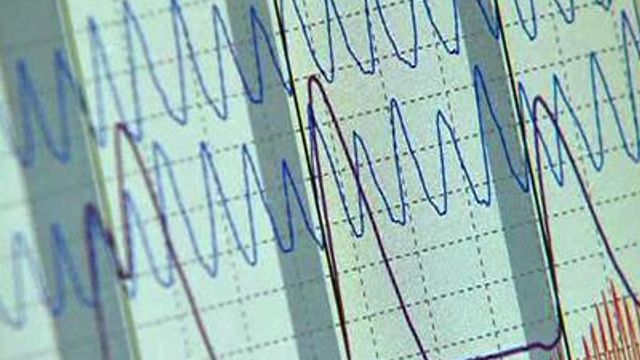NC Wanted: The truth about lie detectors
To get to the truth about polygraph testing, NC Wanted traveled to the FBI's North Carolina headquarters in Charlotte. FBI Special Agent Mark Rozzi is the bureau’s only polygraph examiner in the state.
Posted — UpdatedBut as we know, sometimes Hollywood gets it wrong. To get to the truth about polygraph testing, NC Wanted traveled to the FBI’s North Carolina headquarters in Charlotte. FBI Special Agent Mark Rozzi is the bureau’s only polygraph examiner in the state.
“If you don’t want the truth, don’t bring them into my room,” Rozzi said.
Polygraph, commonly known as a lie detector test, is an investigative tool used to determine truthfulness through specific bodily indicators, but the test’s credibility is shadowed by controversy.
A simple Google search will reveal a slew of polygraph critics who claim the technology is unreliable and even offer suggestions for “tricking” the machine.
Former state Attorney General Rufus Edmisten has called polygraphs “20th century witchcraft.”
But Rozzi maintains that when used correctly, a polygraph is about 95 percent accurate. He added, though, that research indicates that a polygraph must be administered under very rigid guidelines for it to be effective.
“It’s a tool. It’s not the end-all. If polygraph was perfect, there would be no criminal justice system. We’d just line them up outside my door, and if they fail, they go to jail. But it’s a very helpful tool and a very useful tool when used properly, as I believe we do in the FBI and the federal polygraph system,” he said.
The federal polygraph program requires an extensive pre-test, in which the examiner gets to know the subject, establishes some baseline readings and fully prepares the subject for the test itself, which only lasts a couple of minutes. After two or three minutes, the subject will get antsy, and the results will be skewed, Rozzi said.
Polygraph has become a sticking point in some high-profile North Carolina murder cases.
Raven Abaroa, who was arrested this week for the 2005 murder of his pregnant wife Janet in Durham, refused to submit to polygraph testing soon after the crime. In a 2007 interview with NC Wanted, Abaroa said a polygraph was unnecessary because he had nothing to hide.
“You don’t need a polygraph from me. You may think you do, but you don’t,” Abaroa said. “The bottom line is that I was not involved with the death of my wife.”
Rozzi said a suspect is well within his rights to refuse a polygraph test.
“Polygraph’s voluntary. No one can make someone take a polygraph," he said. "They’re there because they’re innocent and they’re ready to prove it, or they’ve got something they need to get off their chest."
In the legal system, polygraph results are not admissible in court, and they are often not enough to convince prosecutors to file charges against a suspect. That was the case in the 1994 unsolved murder of Beth Ellen Vinson in Raleigh. Her live-in boyfriend, Rick Heath, failed a polygraph test. The lead investigator wanted Heath arrested, but he couldn’t convince the district attorney.
Other investigators on the case said Heath’s emotions got in the way of the test.
“Yes, he failed a polygraph,” said retired Raleigh police investigator John Lynch. “The emotions he was going through didn’t make him a good subject for a polygraph.”
But Rozzi said stress is factored in.
“Sitting down to a polygraph chair is going to be nerve-wracking… You can’t compare one person to another and say, ‘Well, there’s your liar. They’re perspiring more; their heart beats faster.’ We’re all unique. So we take the time to establish a baseline for you, for the individual taking the test,” Rozzi explained. “Now, however nervous you are while taking a polygraph, it becomes a constant in the equation. That’s how nervous you’ll be while taking your polygraph.”
Polygraph measures three physiological indicators for dishonesty: changes in respiration levels, changes in perspiration levels and blood flow to and from the heart. But the hard data is only part of the equation.
Polygraph examiners must also rely heavily on psychology, Rozzi said, adding that intensive study of psychology is part of the FBI’s polygraph training program.
“The buttons that you’re pressing are not necessarily the ones on the computer; they’re the ones in people’s psyche,” Rozzi said. “The real art with polygraph is the art of interview and interrogation; that’s what it comes down to. Your best polygraph examiners are skilled and experienced interviewers. They get people. They understand who they are, and the polygraph is a tool to get to the truth.”
• Credits
Copyright 2024 by Capitol Broadcasting Company. All rights reserved. This material may not be published, broadcast, rewritten or redistributed.





